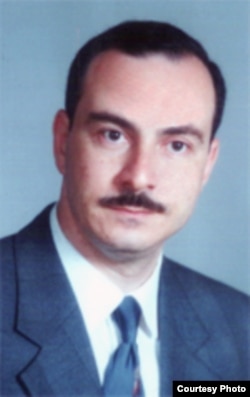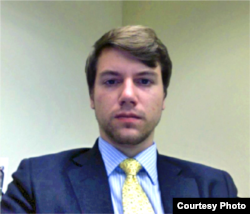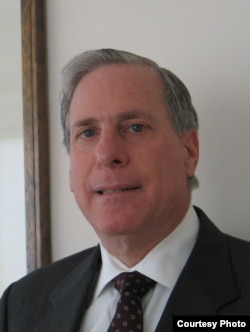WASHINGTON —
As Syrians go to the polls this week amid civil war, the presidential victor is all but assured: Bashar al-Assad.
So why bother holding an election at all?
Analysts say Assad has more to gain than votes. He is trying to display political solidarity to the world and to ignore the apolitical transition that the West has called for.
Narrowing the competition
The Syrian regime has taken several steps to ensure that the election works in Assad’s favor.
In March, parliament approved a new election law which allows, for the first time, multiple candidates to run for office. “But the law puts conditions on persons who would like to become president,” said Ayman Abdel Nour, editor-in-chief at All4Syria.info and president of the nonprofit group,Syrian Christians for Peace.
Only those who resided continuously in Syria for a decade prior to being nominated were allowed to run. This effectively eliminated the opposition in exile.
The law further stipulates that candidates be at least 40 years old, born to Syrian citizens, married to Syrian citizens and possess clean criminal records—requirements that further narrow the playing field.
“Those conditions mean that only a few people inside Syria who are totally loyal to Bashar Al-Assad,” Abdel Nour said. “So basically, he is running against himself and his entourage.”
Twenty-four candidates registered to run by the May 1 deadline. But the regime only designated two as eligible to enter the race: Parliamentarian Maher Al-Hajjar, a member of Assad’s Baath Party, and businessman Hassan Al-Nouri, a member of the opposition deemed “patriotic” to Syria.
Narrowing voter eligibility
Another step in staging the election, said Abdel Nour, is restricting who will be allowed to cast a ballot.
“If you are outside the country, you need to prove that you left Syria legally and you have a stamp on your passport,” he said. “You must also have a valid passport, which millions of Syrians don’t have—including me, my family and all of the opposition.”
If Syrians in exile want to vote, they must also have legal residency wherever they are living, which means, according to Abdel Nour, that 2.5 million Syrian refugees in Jordan, Turkey, Kurdistan and Lebanon will have no say in the election.
Syrian embassies in Amman, Beirut and other capitals opened their doors Wednesday for eligible Syrians to cast early votes.
Hart Uhl, Program Director at the Syrian Center for Political and Strategic Studies told VOA that crowds of voters created traffic jams in the streets of Beirut, but that voter turnout was not as large as Syrian authorities indicated.
“At least one quarter of the population living in Lebanon is now Syrian,” Uhl said, “equating to well over a million. To even think that all eligible voters would be able to cast their vote at a single polling station, the Syrian Embassy, is beyond absurd.
"The Syrian government is interested in only the appearance of mass support - having only three or four ballot boxes to receive votes at any given time creates quite a queue and accomplishes this nicely.”
Millions inside Syria will be deterred from voting by civil war. Voting will be held only in government-held areas, and it is unlikely that voters in insurgent-held areas would cross dangerous front lines and risk detention or worse.
Cementing power
Holding this kind of an election may not give a strongman political legitimacy, but experts say it will cement Assad’s political stranglehold over Syria.
“Basically a sham election is an internal mechanism for ordering and reconsolidating power,” said Joshua Stacher, an assistant professor of political science at Kent State University and author of Adaptable Autocrats: Regime Power in Egypt and Syria.
“It allows for the constituent parts of the regime--political parties, security services and local strongmen in areas outside the capital--to reaffirm their solidarity with President Al-Assad,” he said. “And it also allows them to line up and get patronage.”
In addition, Stacher said, an autocratic election sends an important message to Syrian society:
It says: “We can fight a civil war for three years, we can rig an election in the middle of it, and there’s nothing you can do about it. Do you really think you can overthrow us?’” Sacher said.
Gauging loyalty
Bruce Bueno de Mesquita, a New York University political scientist and author of The Dictator’s Handbook, said staged elections also provide leaders very useful information about who is loyal—and who is not.
“Dictators get to see things like what turnout was like in different parts of the country, what was the vote distribution in different parts of the country—that is, the actual vote distribution, as opposed to whatever may get reported outwards as one of the ways of rigging it,” Bueno de Mesquita said. “They also get to find out which parts of the country stayed home, that is, aren’t supportive, and which turned out to vote and are supportive.”
With that information, dictators can then direct resources disproportionately to those segments of the population that give them the most support, he added.
“It is a mechanism for the leadership to find out who he wants to reward and who he wants to punish, and this, in turn, gets people who don’t support the leadership to turn out and vote for them, out of fear of the retribution,” Bueno de Mesquita said.
Impact on crisis
But most experts say that the election isn’t likely to quell the civil war, which after three years has claimed tens of thousands of lives and left millions displaced.
“This so-called election is not going to solve the Syrian civil conflict and it’s not going to stem the flow of internally and externally displaced people,” Kent State’s Sacher said. “It’s a spectacle designed to encapsulate or regain control over a narrative, even if only temporarily.”
Nor does it matter to Assad that it will further isolate Syria from the West.
“Assad’s not isolated. Iran supports him. Hezbollah supports him and even the civilian apparatus in Lebanon,” Stacher said. “And there are plenty of people making money off this war now in Iraq, in Turkey and in Lebanon.”
War economies tend to keep conflicts going, Sacher said.
“And right now,” he noted, “we’re in a full-fledged war economy.”
So why bother holding an election at all?
Analysts say Assad has more to gain than votes. He is trying to display political solidarity to the world and to ignore the apolitical transition that the West has called for.
Watch related video report by VOA's Elizabeth Arrott
Narrowing the competition
The Syrian regime has taken several steps to ensure that the election works in Assad’s favor.
In March, parliament approved a new election law which allows, for the first time, multiple candidates to run for office. “But the law puts conditions on persons who would like to become president,” said Ayman Abdel Nour, editor-in-chief at All4Syria.info and president of the nonprofit group,Syrian Christians for Peace.
Only those who resided continuously in Syria for a decade prior to being nominated were allowed to run. This effectively eliminated the opposition in exile.
The law further stipulates that candidates be at least 40 years old, born to Syrian citizens, married to Syrian citizens and possess clean criminal records—requirements that further narrow the playing field.
“Those conditions mean that only a few people inside Syria who are totally loyal to Bashar Al-Assad,” Abdel Nour said. “So basically, he is running against himself and his entourage.”
Twenty-four candidates registered to run by the May 1 deadline. But the regime only designated two as eligible to enter the race: Parliamentarian Maher Al-Hajjar, a member of Assad’s Baath Party, and businessman Hassan Al-Nouri, a member of the opposition deemed “patriotic” to Syria.
Narrowing voter eligibility
Another step in staging the election, said Abdel Nour, is restricting who will be allowed to cast a ballot.
“If you are outside the country, you need to prove that you left Syria legally and you have a stamp on your passport,” he said. “You must also have a valid passport, which millions of Syrians don’t have—including me, my family and all of the opposition.”
If Syrians in exile want to vote, they must also have legal residency wherever they are living, which means, according to Abdel Nour, that 2.5 million Syrian refugees in Jordan, Turkey, Kurdistan and Lebanon will have no say in the election.
Syrian embassies in Amman, Beirut and other capitals opened their doors Wednesday for eligible Syrians to cast early votes.
Hart Uhl, Program Director at the Syrian Center for Political and Strategic Studies told VOA that crowds of voters created traffic jams in the streets of Beirut, but that voter turnout was not as large as Syrian authorities indicated.
“At least one quarter of the population living in Lebanon is now Syrian,” Uhl said, “equating to well over a million. To even think that all eligible voters would be able to cast their vote at a single polling station, the Syrian Embassy, is beyond absurd.
"The Syrian government is interested in only the appearance of mass support - having only three or four ballot boxes to receive votes at any given time creates quite a queue and accomplishes this nicely.”
Millions inside Syria will be deterred from voting by civil war. Voting will be held only in government-held areas, and it is unlikely that voters in insurgent-held areas would cross dangerous front lines and risk detention or worse.
Cementing power
Holding this kind of an election may not give a strongman political legitimacy, but experts say it will cement Assad’s political stranglehold over Syria.
“Basically a sham election is an internal mechanism for ordering and reconsolidating power,” said Joshua Stacher, an assistant professor of political science at Kent State University and author of Adaptable Autocrats: Regime Power in Egypt and Syria.
“It allows for the constituent parts of the regime--political parties, security services and local strongmen in areas outside the capital--to reaffirm their solidarity with President Al-Assad,” he said. “And it also allows them to line up and get patronage.”
In addition, Stacher said, an autocratic election sends an important message to Syrian society:
It says: “We can fight a civil war for three years, we can rig an election in the middle of it, and there’s nothing you can do about it. Do you really think you can overthrow us?’” Sacher said.
Gauging loyalty
Bruce Bueno de Mesquita, a New York University political scientist and author of The Dictator’s Handbook, said staged elections also provide leaders very useful information about who is loyal—and who is not.
“Dictators get to see things like what turnout was like in different parts of the country, what was the vote distribution in different parts of the country—that is, the actual vote distribution, as opposed to whatever may get reported outwards as one of the ways of rigging it,” Bueno de Mesquita said. “They also get to find out which parts of the country stayed home, that is, aren’t supportive, and which turned out to vote and are supportive.”
With that information, dictators can then direct resources disproportionately to those segments of the population that give them the most support, he added.
“It is a mechanism for the leadership to find out who he wants to reward and who he wants to punish, and this, in turn, gets people who don’t support the leadership to turn out and vote for them, out of fear of the retribution,” Bueno de Mesquita said.
Impact on crisis
But most experts say that the election isn’t likely to quell the civil war, which after three years has claimed tens of thousands of lives and left millions displaced.
“This so-called election is not going to solve the Syrian civil conflict and it’s not going to stem the flow of internally and externally displaced people,” Kent State’s Sacher said. “It’s a spectacle designed to encapsulate or regain control over a narrative, even if only temporarily.”
Nor does it matter to Assad that it will further isolate Syria from the West.
“Assad’s not isolated. Iran supports him. Hezbollah supports him and even the civilian apparatus in Lebanon,” Stacher said. “And there are plenty of people making money off this war now in Iraq, in Turkey and in Lebanon.”
War economies tend to keep conflicts going, Sacher said.
“And right now,” he noted, “we’re in a full-fledged war economy.”










